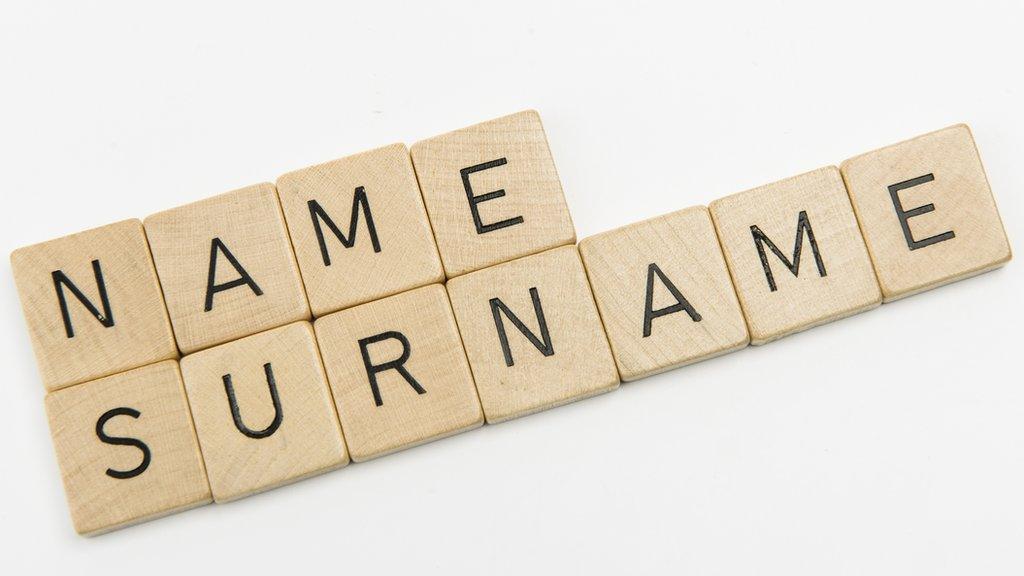Jones, Davies and Williams: What are the origins of Welsh surnames?
- Published

Well-known people with the prefix "ap"; Archdruid Myrddin ap Dafydd, Plaid Cymru leader Rhun ap Iorwerth, the voice of the Principality Stadium, Rhys ap William, and the actress Llinor ap Gwynedd
When you think of Welsh surnames, which names come to mind? Jones? Davies? Williams?
Well, they are the three most popular surnames in Wales, with the remaining names in the top 10 being Evans, Thomas, Roberts, Lewis, Hughes, Morgan and Griffiths.
In order to explain the origins of our most popular surnames, we should note that there was a time when the majority of people in Wales had a last name starting with the prefix "ap", meaning "son of".
Because of this, Welsh surnames starting with the letter P have an important link to our past.
The surname Puw/Pugh comes from "ap Huw/Hugh", Powell comes from "ap Hywel", Pryce/Price comes from "ap Rhys", Parry/Parri comes from "ap Harry/Harri", Prichard comes from "ap Richard" and Prydderch comes from "ap Rhydderch".
The same is true of Welsh surnames that begin with B; Bowen comes from "ab Owen", Bevan comes from "ab Evan" and Beynon comes from "ab Einion".
When did the Welsh start using "ap"?
Ben Guy, assistant professor at Cambridge University's Department of Anglo-Saxon, Norse & Celtic, is formerly of Cardiff University and specialises in medieval Welsh history and literature.
"There is evidence that 'ap', or its original form 'fab', was used in the 10th Century for sure, and before this there are records in Latin of the same practice as well," said Dr Guy.
"In the early Middle Ages everyone in Wales had a last name starting with 'ap' - the folk, the nobility and royalty."
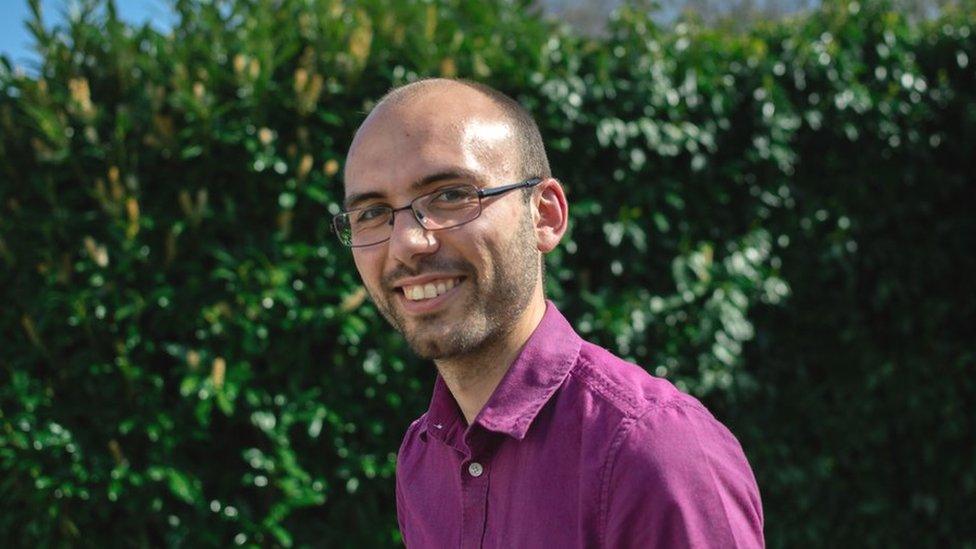
Dr Benjamin Guy from Cambridge University
So when did things start to change and ap Harry become Parry? And ab Einion become Beynon?
"Things began to change in the 16th Century with the Welsh gentry, who started using fixed surnames rather than 'ap' and their father's name. But the surnames were usually based on the old 'ap' names - so 'ap Huw' could become fixed as the surname Puw, and 'ap Rhys' as 'Prys'.
"The gentry often ended up adopting single surnames because they interacted more and more with the English, and standardised or anglicised their names as a result."
There has been no tradition in Wales of using surnames from professions, as there has been in England - Butcher, Cooper, Baker, Fletcher or Mason. Names like "Dai the Milk" or "John the Post" may be common in villages across Wales, but these are mostly unofficial nicknames.
But as Dr Guy says, there is a tradition in Wales of surnames arising from place names. Prysor, Mostyn, Gower and Pennant are examples of these.
"Mostyn was a powerful and wealthy family of that area at the time", Dr Guy said.
"Also in this period (16th-17th Century) many nicknames or 'epithets' became anglicised and fixed as surnames, such as Fychan as Vaughan, and Llwyd as Lloyd. Surnames could even vary within the same families - some used 'ap Hugh' while others used 'Pugh' or even just 'Hugh'. Over time though, one form came to be used by one branch of the family."
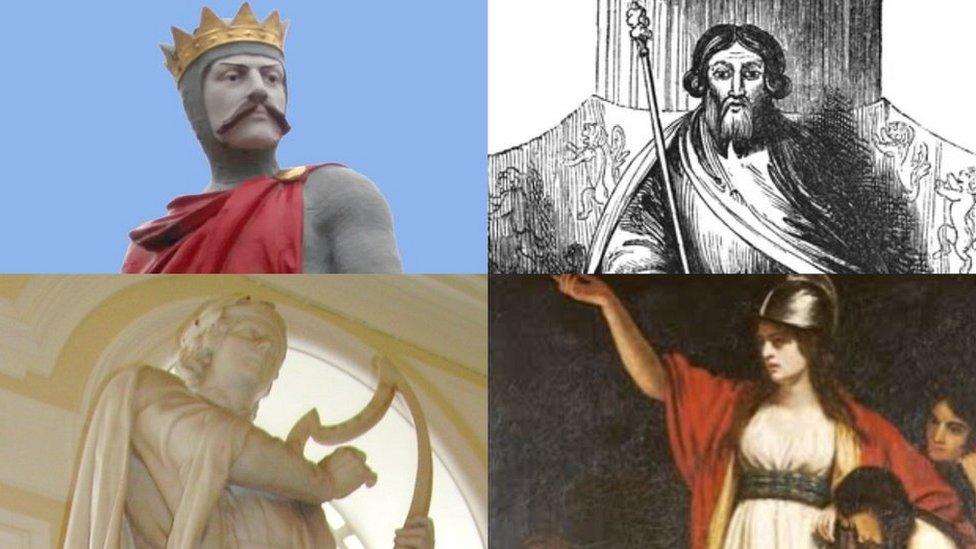
Some of our most famous names of the middle-ages; Llywelyn ap Iorwerth (Llywelyn the Great), Owain ap Gruffydd (Owain Glyndŵr), the poet Dafydd ap Gwilym, and Gwenllian ferch Gruffydd
Dr Guy says that dropping the "ap" was a change which happened over time, and that the gentry led, with the rest of the population then following.
"Some people felt that they needed to have a surname, and get rid of the old system. But ordinary people kept the old system for a longer period because they didn't see the importance in having standardised surnames.
"This change happened among the folk between the 16th and 18th Centuries, and over time more people came to use surnames. By the beginning of the 19th century the majority were using surnames as we know them today."
There are said to be other contributing factors to the name changes, such as the Church and the English legal system Anglicising the names on birth certificates and court documents, as well as landowners encouraging, perhaps even forcing, the changes in Welsh society.
According to the 2021 census there are more than 170,000 people with the surname Jones in Wales, 112,000 with Davies, 111,000 with Williams, over 74,000 with the name Evans and over 71,000 with the name Thomas.
How were Jones, Evans and Williams formed?
As the Welsh were getting used to using surnames regularly, the surnames evolved somewhat.
Dr Guy said: "In Wales people used the English 's' at the end of names like Williams, Evans and Jones, where others used Gruffydd instead of ap Gruffydd.
"The 's' at the end of a Welsh name came from English. So it's like saying 'William's son', but without the 'son' at the end. It's a direct translation of the 'ap' form.
"So, 'ap Gwilym' was the same as 'William's son', which could then be shortened to 'Williams'… 'ap Siôn' was the same as 'John's son', which could be shortened to 'Johnson' and then Jones… 'ap Ifan' was the same as 'Evan's son', which became 'Evans'."

Some present-day famous Welshmen and the origin of their surnames; Neco Williams (ap Gwilym), Tom Jones (ap Sion), Elfyn Evans (ap Ifan/Evan) and Andy Powell (ap Hywel/Howell)
Customs in other Celtic countries
Ireland and Scotland have their O, Mc and Mac of course - Mac meaning son of, the same as ap.
But Dr Guy says perhaps the evolving nature of the Welsh "ap" should be compared more closely with another Celtic country.
"The more similar comparison to what happened in Wales is the Isle of Man, where you can see that there are a lot of surnames starting with 'C' - Cubbon being an example.
"Manx surnames often start with C for the same reason that Welsh names start with P or B. It continues the end of the 'Mac', which was part of the old system of naming there."
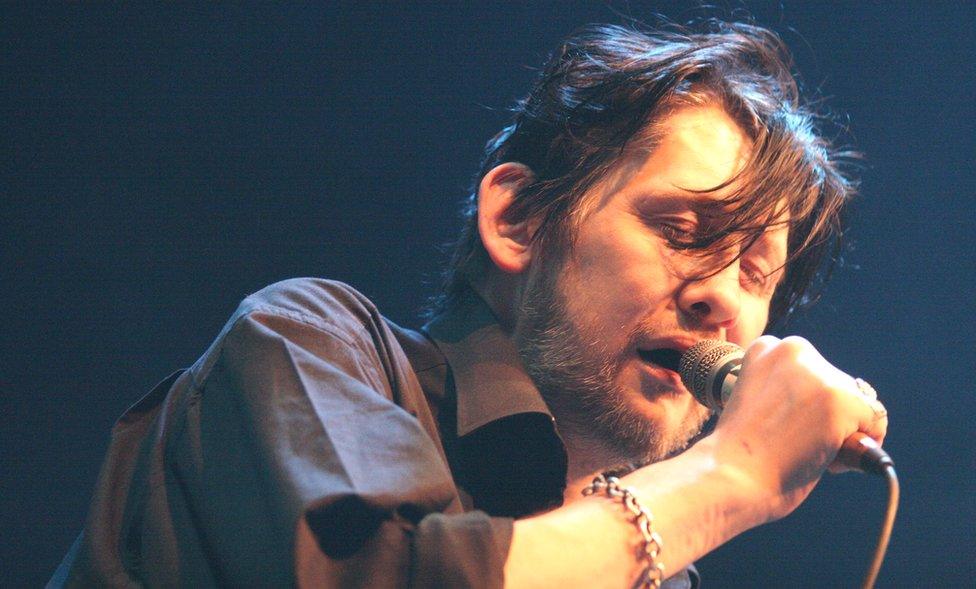
Shane MacGowan, lead singer of the Pogues who died on 30 November
Over the centuries Jones, Williams, Evans, Roberts, Hughes and the others have become Welsh surnames, and these names were exported all over the world.
Today, Williams is the third most popular surname in the USA, and Jones and Davis are also in the top 10 on the national list. And with surnames such as Thomas, Lewis, Roberts and Floyd also popular in North America it is important to note their origin, with their roots in Wales and the old "ap" names.
But it is also very important to note that the tradition of using "ap" continues today in Wales, and that it's a tradition that goes back 1,000 years and more.
Related topics
- Published13 November 2023
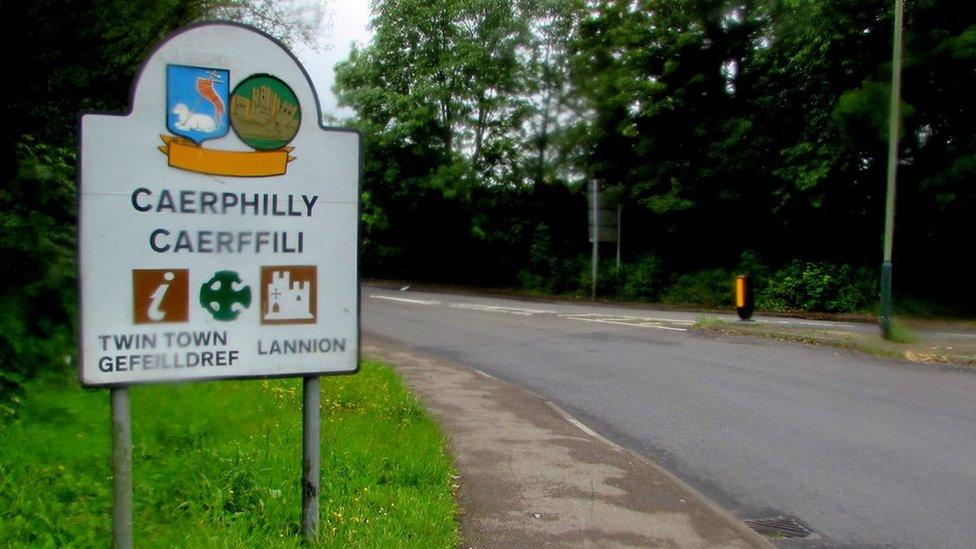
- Published18 November 2016
